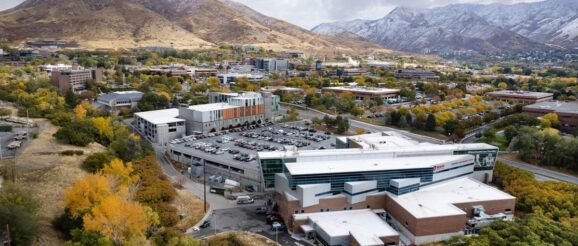Health care innovation and technology are good for Utah’s economy, report says

Health care is good for Utah’s economy and its workforce, a new report has found.
The report, issued this week by the Kem C. Gardner Policy Institute at the University of Utah’s Eccles School of Business, found that the life science and health care innovation industry — which includes pharmaceuticals, research and lab testing and medical technology — “creates substantial economic impacts” statewide, contributing billions of dollars and thousands of jobs.
The report found that life sciences contributed billions to the state’s gross domestic product in 2022, and is one of the fastest-growing job markets in the country.
Industry executives said the report is proof that Utah’s investment in life sciences is worth it.
“With many high growth life sciences companies in Utah, the report findings are no surprise,” said Kelvyn Cullimore,CEO of the trade association BioUtah. “Industry, academia, government and health care delivery are collaborating to build a significant life sciences hub in Utah.”
A worthwhile investment
Health care and life science is one of five industries the Governor’s Office of Economic Opportunity has targeted for support through grants, loans and tax credits.
The report estimated the state spent $369 million last year in operating expenses and an additional $46.2 million in capital expenditures related to life sciences.
The investments have paid off. The industry earned the state $345.8 million in net revenue last year through income and sales tax, according to the report. It contributed over $500 million in “net positive fiscal impacts” to state and local governments, and more than $21 billion to the state’s total GDP.
The state also benefitted from nearly $300 million in funding from the National Institute of Health in 2022 — money distributed mostly to the University of Utah and Utah State University. Researchers at those universities have been awarded more than 800 life sciences patents, the report found, and launched 35 life sciences startups since 2018.
Health care innovation is contributing to some of the fastest job growth in the state and country, the report said.
Life sciences jobs account for less than 3% of the state’s total workforce, but are expanding more rapidly in Utah than any other state, the report found. Utah has the third highest concentration of life science jobs in the country, according to the report.
And those jobs pay more than jobs in other industries. Workers in the life sciences industry earn, on average, more than 47% more than employees in other industries, according to the report.
The life science workforce is also more racially and ethnically diverse than other industries, the report found. More employees in the industry identify as nonwhite, compared to other industries.
There are fewer women in life sciences jobs in Utah than in other industries. Nationally, it’s almost an even split, but women account for 44.5% of Utah’s industry workforce.
Higher education helps
Utah’s universities are helping train the industry’s growing workforce, according the the report. A lot of Utah college students are studying science, and specifically studying computer science, engineering and biology/biomedical sciences. Those three categories accounted for more than 60% of STEM degrees received in the 2020-2021 school year, the report found.
STEM degrees, combined with institutional research and innovation, “advances the life sciences industry” in Utah, the report concluded.
“The report highlights the commitment of those that work in Utah’s life sciences industry and their passion for better patient outcomes,” said Aimee Edwards, executive director of BioHive, which promotes the state’s life science industry. “Through innovation and collaboration, the life science industry creates significant impact across the state, expands our role in global health care, and provides meaningful advances for patients.”
Shannon Sollitt is a Report for America corps member covering business accountability and sustainability for The Salt Lake Tribune. Your donation to match our RFA grant helps keep her writing stories like this one; please consider making a tax-deductible gift of any amount today by clicking here.
